
THERE WAS GREAT excitement on board CSIRO’s RV Investigator. “I found you a handfish,” Dr Candice Untiedt told Carlie Devine as they scanned images of the sea floor captured by the ship’s deep-sea camera. Carlie, a research technician, and Candice, a marine ecologist, both with CSIRO, were working on the Investigator when Candice spotted the strange fish. “I was sitting right next to her,” Carlie says. “It was so exciting because I’d said, ‘We’ve got to find one’, and there it was, just sitting on the bottom.”
Sitting on the bottom is what handfish do. Unlike most fish, they don’t have a swim bladder to regulate their buoyancy and so don’t often swim, although they can dart short distances. Instead, these fish walk along the sea floor, using their hand-shaped fins to move about and eating small crustaceans, worms and molluscs as they go.
While obviously a handfish, the identity of the species Candice and Carlie saw remains a mystery. It looked most like a narrowbody handfish, collected only twice in scientific trawls, in 1984 and 1996. But it was bigger. “The narrowbody specimens are both about 5.5cm long, whereas the one we found was probably more than 10cm,” Carlie explains. “We don’t know how big the narrowbody species gets, so we don’t actually have a lot of information to go on.” It could even be a new species.
This story is from the {{IssueName}} edition of {{MagazineName}}.
Start your 7-day Magzter GOLD free trial to access thousands of curated premium stories, and 9,000+ magazines and newspapers.
Already a subscriber ? Sign In
This story is from the {{IssueName}} edition of {{MagazineName}}.
Start your 7-day Magzter GOLD free trial to access thousands of curated premium stories, and 9,000+ magazines and newspapers.
Already a subscriber? Sign In
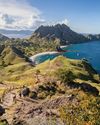
SULAWESI SENSATIONS
There are worlds within worlds and marvels untold waiting to be experienced on Indonesia's remote islands.
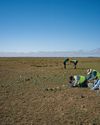
SEARCHING FOR AUSSIE DINOSAURS
Our understanding of where to find ancient life in Australia has been turned on its head by a new appreciation of the country's geology. Now the world is looking to our vast outback as the latest hotspot to locate fossils.
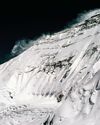
THE HARDEST NIGHT
The first Australian ascent of Mt Everest in 1984 is one of the great feats of mountaineering. Climbed by a small team semi-alpine style, with no bottled oxygen, via the Great (Norton) Couloir, it remains unrepeated 40 years later.
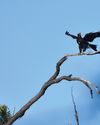
WEDGE-TAILED WONDER
The chance discovery of an eagle nest leads to an extended vigil observing normally hidden behaviours of one of nature's supreme winged marvels.
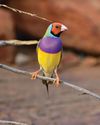
BURDENED BY BEAUTY
Northern Australia's Gouldian finch survives in huge numbers in cages around the world, but its wild population continues to struggle.

A TELESCOPE FOR A GOLDEN AGE
After a stellar 50 years as one of the country's major scientific assets, the AAT continues to play a major role in keeping Australian astronomy on the world stage.
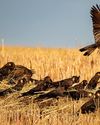
COCKY WHISPERING AT COOMALLO CREEK
This patch of remnant bush on the edge of the West Australian wheatbelt is a place loved by one of Australia's rarest bird species and the man who has studied the site for more than 50 years.

A PIONEERING PAIR
Louisa Atkinson and her mother, Charlotte, were among Australia's earliest authors, and pioneers in women's rights.

THE LONGEST WALK
Lucy Barnard is walking from Argentina to Alaska -the length of the Americas - on an extraordinary journey of endurance and adventure.
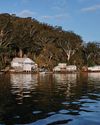
SECLUDED, BUT NOT ALONE
In an era of heightened social isolation, where many of us lead lonely lives, Dangar Island offers the chance to be part of a supportive, connected community.